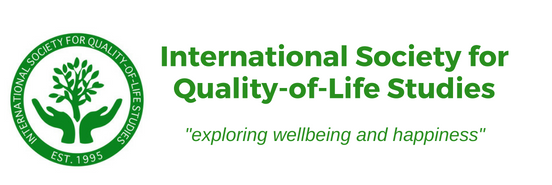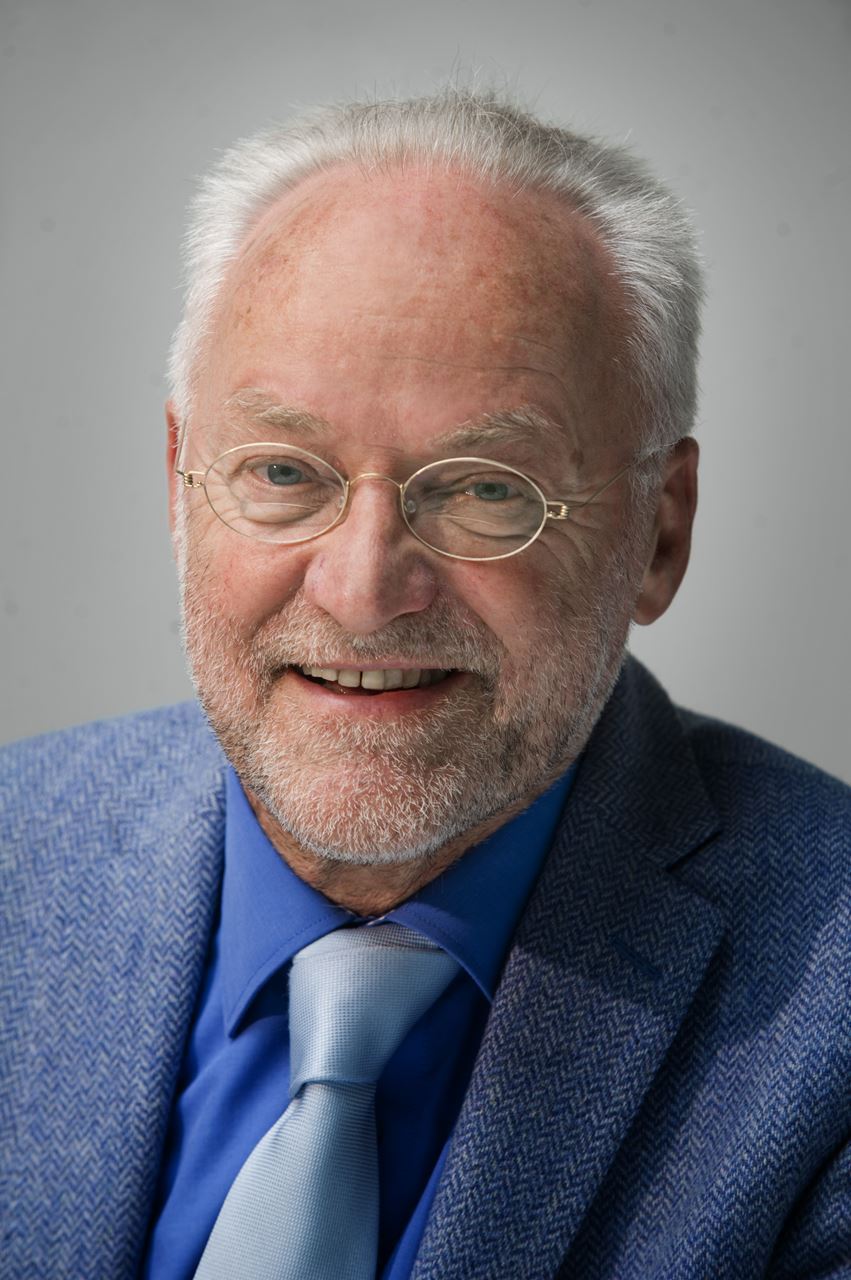 In Memory: ISQOLS Pioneer, Ruut Veenhoven 1942-2024
Ruut was not only one of the ‘godfathers’ of the scientific study of happiness and inspiration for many researchers, but also a great colleague and friend to many of us. We shall miss him dearly, but his contributions and spirit will forever resonate within the happiness community and beyond. To remember and honor Ruut, we provide an overview of his life and work below. On behalf of the ISQOLS Board, Martijn Burger and Jill Johnson Obituary Ruut Veenhoven (1942-2024) by Ad Bergsma Ruut Veenhoven was one of the godfathers of the scientific study of happiness, a founding editor of the Journal of Happiness Studies and the driving force behind the World Database of Happiness. Veenhoven was born during the Second World War in 1942 in The Hague in The Netherlands. During the sixties, he studied sociology and never stopped working on the liberation and emancipation of individuals. After formal retirement, he kept working in his room at the Erasmus Happiness Economics Research Organization. On the wall he kept a picture of his younger self, with the long hair and shaggy beard that was common for the counterculture of the sixties. Between 1970 and 1990 he was a leading advocate in promoting the acceptance of voluntary childlessness and abortion law reform in The Netherlands. In his PhD study Veenhoven (1984) concentrated on the conditions of happiness. His life's work was the World Database of Happiness, in which he and a team of volunteers and coworkers brought together some 50,000 standardized descriptions of empirical findings on happiness as subjective appreciation of life. When his physicians told Veenhoven he lived in spare time, he asked me to mention in his obituary that some institution could still adopt the WDH. If not, his work was not in vain. Volunteers will finish the work on World Database of Happiness by entering another 1,500 studies. The WDH will be complete for studies published before 2021 and will remain publicly available. The database provides empirical ground for Jeremy Bentham's moral theory that societies should aim for the 'greatest happiness for the greatest number'. Veenhoven’s underlying idea was that societies can raise happiness when we know in what circumstances it occurs. To paraphrase the American Declaration of Independence, Veenhoven facilitated the informed pursuit of happiness. Scientifically, Veenhoven will be remembered for several, often quoted insights. The most consequential is perhaps that countries differ widely in average happiness of citizens and that it is possible to predict 80 percent of the variance. People are generally happy in countries in which basic human needs are fulfilled and that are characterized by:
As Veenhoven himself recently remarked: ‘Prophets of doom associate modernization with increasing misery, but the data show a positive correlation with happiness. We now live longer and happier than ever before in human history and both longevity and happiness are still on the rise.’ Veenhoven did not escape a downside of a long life. He spent his last years in ill health but kept working and enjoying life. ‘The thought that my death is imminent, gives me peace of mind, much to my own surprise.’ One anecdote sums up what he was like. I once phoned in on him when he was stuck on a train platform, because the elevator was out of order and he no longer had the strength to climb the stairs. Veenhoven did not complain, but cheerfully described how much he appreciated public transport in The Netherlands and the excellent health care he received. As one of his PhD students and associate Jan Ott opined: ‘Ruut was able to be stoic in the face of setbacks, without sliding into indifference.’ Veenhoven also had an opportunistic streak. When he was diagnosed in 2019 with the disease that would end his life in 2024, he used this news to get some extra money to finish a paper on the effectiveness of happiness trainings. When I told him he surprised me, he would simply say that ‘you have to make hay when the sun shines’. Doing just happened to be his mission and one of his favorite pastimes. Veenhoven was married to Kiki Dijkstra and was father of two daughters and a son. The days he could spend with his grandchildren were sacred to him. Veenhoven was a scientist with a vibrant enjoyment of life who never missed an opportunity to poke fun at himself and other dwellers of academia. We will miss him. Dr. Ad Bergsma is a psychologist and science journalist. Ruut Veenhoven supervised his 2011 PhD dissertation ‘Imperfectly Happy’ and they continued cooperation until today, such as on the effects of happiness training. In Memoriam: Ruut Veenhoven The International Society for Quality-of-Life Studies (ISQOLS) mourns the loss of Ruut Veenhoven, a pioneering scholar whose life's work shaped the fields of happiness, well-being, and quality-of-life research. As a founding board member of ISQOLS in 1995 and the architect of the World Database of Happiness, Ruut devoted his career to unraveling the complexities of happiness through empirical rigor and innovative methods. Ruut’s journey into happiness research began during his sociology studies in the 1960s. His early experiences with political movements, personal reflection, and academic curiosity spurred his lifelong commitment to understanding happiness as a measurable and actionable concept. His seminal contributions include the influential publications Conditions of Happiness (1984), Happiness in Nations (1993), and The Four Qualities of Life (2000). Beyond these works, his tireless efforts as the director of the World Database of Happiness created an unparalleled resource for researchers, housing over 50,000 findings on life satisfaction. Ruut believed that happiness was not just a fleeting state but a tangible outcome influenced by social conditions, informed choices, and individual life-ability. His work consistently challenged philosophical speculations about happiness, demonstrating through data that greater happiness is both possible and achievable. As he eloquently put it, “Happiness requires a livable environment, but it also depends on life-ability: the ability to find a way of life that fits you.” His dedication to advancing the science of happiness extended beyond research. Through his leadership roles at Erasmus University Rotterdam, the Erasmus Happiness Economics Research Organization (EHERO), and North-West University in South Africa, he mentored countless scholars and inspired interdisciplinary collaboration worldwide. Carrying Forward Ruut’s Legacy Ruut left detailed instructions for the continuation of the World Database of Happiness, emphasizing its importance as a resource for future generations of scholars. The database, now preserved in the library of Erasmus University Rotterdam, will remain publicly available. Ruut’s wish was for the archive to grow and adapt, enabling new research and discoveries. Scholars and institutions can build upon his work through:
Detailed guidelines for building on the database can be found here. We urge members of the ISQOLS community and researchers worldwide to honor Ruut’s legacy by supporting and contributing to the preservation and advancement of the World Database of Happiness. Whether through funding, collaboration, or sharing expertise, there are many ways to ensure this invaluable resource continues to thrive. For those interested in partnering with ISQOLS to support the World Database of Happiness, please contact Jill@isqols.org. Together, we can uphold Ruut’s vision of advancing happiness research for the betterment of societies worldwide. A Life Well-Lived, A Legacy Everlasting Ruut often said that his happiness research brought meaning and joy to his own life. As he reflected in his later years, “Doing research keeps me sharp, involves daily contacts with colleagues and students, and it gives me a sense of meaning. I lead a life that fits me.” His life’s work has touched countless lives, and his influence will endure through the scholarship he inspired and the tools he created. We extend our deepest condolences to his family, colleagues, and the entire quality-of-life research community as we celebrate the extraordinary life and legacy of Ruut Veenhoven. May we continue his mission to create greater happiness for a greater number. Read more about the work and life of Ruut Veenhoven - Ruut Veenhoven: Pioneer in Empirical Research on Happiness. s11482-013-9260-8.pdf - Ruut Veenhoven: Oral History. Oral History - Ruut Veenhoven - Ruut Veenhoven: Member highlight Member Highlight: Ruut Veenhoven - Professor Ruut Veenhoven interviewed on his groundbreaking career and personal perspectives by Professor Paul Frijters: Professor Ruut Veenhoven: McGill - UofT Wellbeing Research Seminar Dec 2023 - Read the key works of Ruut Veenhoven (full texts available): Home Page Ruut Veenhoven - Submit to Ruut Veenhoven Award. Ruut Veenhoven Award - World Database of Happiness: https://worlddatabaseofhappiness.eur.nl/
|


